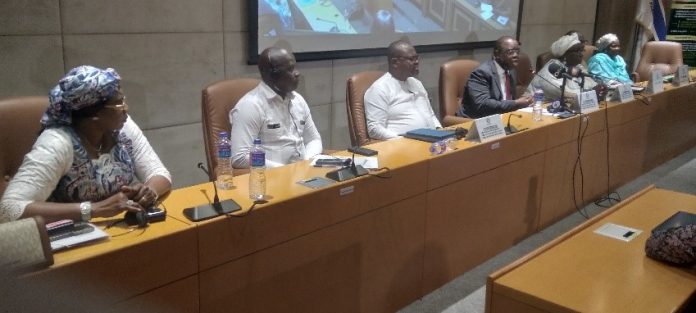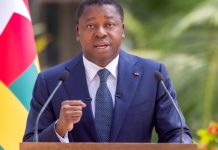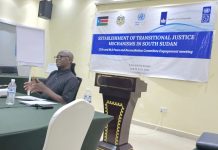By Kebba AF Touray
Members of the Parliament of the Economic Community of West African States (ECOWAS) have urged Mali, Niger, and Burkina Faso to reconsider their decision to withdraw from the regional bloc, calling for renewed unity amid political upheaval in the Sahel.
The appeal came at the close of a five-day parliamentary meeting held in Banjul, The Gambia, under the theme “Considering the Impact of the Withdrawal of Mali, Niger and Burkina Faso from ECOWAS.” The delocalized session was organized by a joint committee of the ECOWAS Parliament that focuses on political affairs, peace and security, legal and human rights matters, social welfare, gender equality, and regional integration.
Lawmakers said the withdrawal of the three countries—each now ruled by military governments—threatens decades of regional cooperation. The ECOWAS Parliament’s call was both emotional and strategic, emphasizing shared history, mutual support, and the need for continued dialogue.
“We started this journey together over 50 years ago,” said Hon. Veronica Kadie Cise of Sierra Leone, who chairs the parliamentary committee on Social Affairs, Gender, Women’s Empowerment, and Persons with Disabilities. “It is disheartening to see our brothers and sisters walk away from a bloc that has stood the test of time. We are appealing to them to come back to the table.”
Hon. Cise stressed that citizens in the Sahel—especially in Mali and Niger—deserve transparency about the reasons for their governments’ withdrawal and should be included in conversations about their nations’ future within ECOWAS. “We agree to disagree,” she said, “but let us correct our differences as one community.”
The regional body, she added, had always been about solidarity. “Since ECOWAS was formed, we have helped each other. We appreciate our Sahelian brothers and sisters. Let’s put grievances behind us and build again.”
Hon. Adomahou Jeremie, Chairperson of the Legal Affairs and Human Rights Committee, echoed similar sentiments, assuring that the parliament would continue facilitating open dialogue. “We have listened to the representatives from these countries,” he said. “We will do our best to keep the doors open for reconciliation.”
The meeting was also marked by tributes to past contributions from Sahelian lawmakers. Hon. Edwin Melvin Snowe Jr., who chairs the joint committee, recalled the role Mali, Niger, and Burkina Faso played in shaping the ECOWAS Parliament. “They were among the most vibrant and active members of our community,” he said. “Democracy and dialogue define our union. That’s why we must find a way to bring them back.”
The withdrawal of the three countries was announced in January after months of rising tensions between ECOWAS and the military juntas in Bamako, Niamey, and Ouagadougou. The Sahelian states accused ECOWAS of failing to support their security needs and rejecting their new alliance—the Alliance of Sahel States (AES)—as they seek alternative regional cooperation.
Despite the political rift, the message from Banjul was one of hope and diplomacy. “We need you,” Hon. Cise said in her final plea. “Let’s not forget the spirit that built this community.”
The ECOWAS Parliament’s resolution is non-binding, but its public posture signals the bloc’s intent to keep channels of communication open even as formal relations remain strained.



















